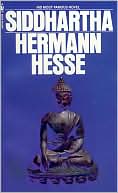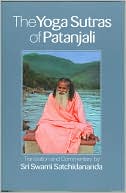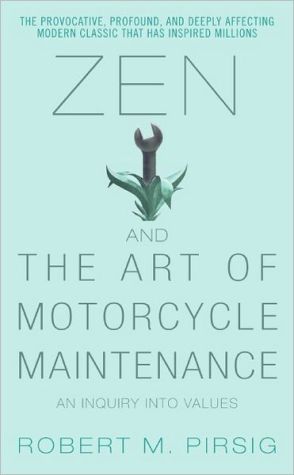Raja-Yoga
Swami Vivekananda, India's first spiritual and cultural ambassador to the West, came to represent the religions of India at the World Parliament of Religions, held at Chicago in connection with the World's Fair (Columbian Exposition) of 1893. His message of the unity of humankind and harmony of religions was embraced by the public and press of the time as representing the essence of the Parliament. The Swami wished to create a bridge between the East and the West by bringing to America the...
Search in google:
By Swami Vivekananda, Raja-Yoga, the path of meditation and control of the mind, gives a scientific treatment of Yoga philosophy describing methods of concentration, psychic development and the liberation of the soul from bondage of the body. Raja-Yoga also includes Swami Vivekananda's translation and commentary of the "Yoga Aphorisms of Patanjali." Raja-Yoga, along with Swami Vivekananda's Karma-Yoga, Bhakti-Yoga, and Jnana-Yoga, are considered classics and outstanding treatises on Hindu philosophy. The Swami's deep spiritual insight, fervid eloquence, and broad human sympathy shine forth in these works and offer inspiration to all spiritual seekers.
Introduction to Raja-Yoga by Swami Vivekananda. All our knowledge is based upon experience. What we call inferential knowledge, in which we go from the particular to the general or from the general to the particular, has experience as its basis. In what are called the exact sciences people easily find the truth, because it appeals to the specific experiences of every human being. The scientist does not ask you to believe in anything blindly; but he has got certain results, which have come from his own experiences, and when, reasoning on them, he wants us to believe in his conclusions, he appeals to some universal experience of humanity. In every exact science there is a basis which is common to all humanity, so that we can at once see the truth or the fallacy of the conclusions drawn therefrom. Now, the question is: Has religion any such basis or not? I shall have to answer the question both in the affirmative and in the negative. \ Religion, as it is generally taught all over the world, is found to be based upon faith and belief, and in most cases consists only of different sets of theories; and that is why we find religions quarrelling with one another. These theories, again, are based upon belief. One man says there is a great Being sitting above the clouds and governing the whole universe, and he asks me to believe that solely on the authority of his assertion. In the same way I may have my own ideas, which I am asking others to believe; and if they ask for a reason, I cannot give them any. This is why religion and religious philosophy have a bad name nowadays. Every educated man seems to say: "Oh, these religions are only bundles of theories without any standard to judge them by, each man preaching his own pet ideas." Nevertheless there is a basis of universal belief in religion, governing all the different theories and all the varying ideas of different sects in different countries. Going to this basis, we find that they too are based upon universal experiences.\ In the first place, if you analyze the various religions of the world, you will find that they are divided into two classes: those with a book and those without a book. Those with a book are stronger and have a larger number of followers. Those without books have mostly died out, and the few new ones have very small followings. Yet in all of them we find one consensus of opinion: that the truths they teach are the results of the experiences of particular persons. The Christian asks you to believe in his religion, to believe in Christ and to believe in him as the Incarnation of God, to believe in a God, in a soul, and in a better state of that soul. If I ask him for the reason, he says that he believes in them. But if you go to the fountainhead of Christianity, you will find that it is based upon experience. Christ said that he saw God, the disciples said that they felt God, and so forth. Similarly, in Buddhism, it is Buddha's experience. He experienced certain truths, saw them, came in contact with them, and preached them to the world. So with the Hindus in their books the writers, who are called rishis, or sages, declare that they have experienced certain truths, and these they preach.\ Thus it is clear that all the religions of the world have been built upon that one universal and adamantine foundation of all our knowledge - direct experience. The teachers all saw God; they all saw their own souls, they saw their souls' future and their eternity; and what they saw they preached. Only there is this difference: By most of these religions, especially in modern times, a peculiar claim is made, namely, that these experiences are impossible at the present day; they were possible only to a few men, who were the founders of the religions that subsequently bore their names. At the present time these experiences have become obsolete, and therefore we now have to take these religions on faith.\ This I entirely deny. If there has been one experience in this world in any particular branch of knowledge, it absolutely follows that that experience has been possible millions of times before and will be repeated eternally. Uniformity is the rigorous law of nature: what once happened can happen always.\ The teachers of the science of Raja-Yoga, therefore, declare not only that religion is based upon the experiences of ancient times, but also that no man can be religious until he has had the same experiences himself. Raja-yoga is the science which teaches us how to get these experiences. It is not much use to talk about religion until one has felt it. Why is there so much disturbance, so much fighting and quarrelling, in the name of God? There has been more bloodshed in the name of God than for any other cause, because people never went to the fountainhead; they were content to give only a mental assent to the customs of their forefathers, and wanted others to do the same. What right has a man to say that he has a soul if he does not feel it, or that there is a God if he does not see Him? If there is a God we must see Him; if there is a soul we must perceive it; otherwise it is better not to believe. It is better to be an outspoken atheist than a hypocrite.
Preface Note on Pronunciation RAJA-YOGA Author's Preface Introduction The First Steps Prana The Psychic Prana The Control of the Psychic Prana Pratyahara and Dharana Dhyana and Samadhi Raja-Yoga in Brief Introduction to Patanjali's Yoga Aphorisms Concentration: Its Spiritual Uses Concentration: Its Practice The Powers Independence Appendix: References to Yoga MISCELLANEOUS The Powers of the Mind Reincarnation Discipleship Glossary Index








